Join a powerful, unprecedented alliance for better eye health for all.
Join IAPB-
Choose an alternate language here
Several experts from around the world joined our advocacy to action webinars and workshops over 2021 and 2022. This page features 6 videos that covers essentials of advocacy to action and 3 videos that brings in a regional context presenting several of these essentials in action at national level.
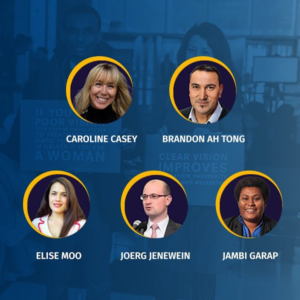 Building effective policy dialogues:
Building effective policy dialogues:
While engaging with governments for policy change, the process involved in a dialogue that is impactful can be credited to a well-planned process that identifies entry points, stakeholders, key advocacy messages and a clear course of action. This video presents such a discussion exploring best practices and approaches to delivering effective policy dialogues on eye health, especially integrated people-centered eye care. The recording also includes a presentation on some tips for effective advocacy messages and support tools and resources available to guide the process.
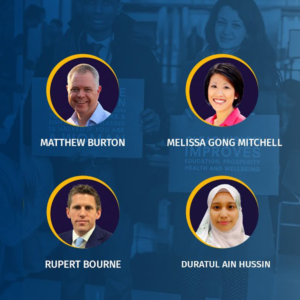
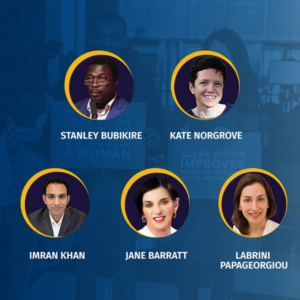
Our advocacy wins in the recent past created a significant momentum in understanding and advocating for eye health as a key social, economic and development issue. This discussion, considers re-framing eye health as a broader development issue impacting not only health but also education, employment, equity, poverty and the other SDGs. Kate Norgrove - Executive Director of Advocacy and Campaigns, WWF-UK, reflects the advocacy approaches she used in framing issues in the context of sustainable development. Jane Barratt, Secretary General, International Federation on Ageing, speaks on how investment in prevention, access and equity will give rise to equality across all ages groups and promote social and economic contributions of citizens and Labrini Papageorgiou, then Global Access Policy Leader, F. Hoffmann-La Roche Ltd, reiterates the need to act urgently to reduce the impact on individuals, societies and economies. Dr Stanley Bubikire, Assistant Commissioner of Health Services/ National eye Health coordinator, Min. of Health-Uganda and Imran A. Khan, Director of Programme Strategy & Development, Sightsavers, stresses the indisputable connection between good eye health and progressing to the SDG’s in the panel.
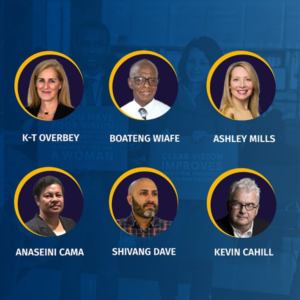
Adapting an agile engagement style with careful consideration on best suited strategy can help scale up the efforts. This video explores some effective strategies and approaches to advocate for policy change such as ‘coalition building’, ‘engaging decision makers’ through showcases. Katherine G. Overbey, then President and Executive Director, OneSight and Dr Boateng Wiafe, Technical Advisor, Operation Eyesight Universal, presents the UN Friends of Vision coalition and the Ghana eye health consortium respectively and reflected on how diversity and inclusion is the pillar for effective coalitions. Ashley Mills, Chief Executive Officer, The Vision Council, and Dr Anaseini Cama, Pacific Trachoma coordinator, Fred Hollows Foundation shares some effective engagement plans while advocating with decision makers for policy change, and emphasizes the need for local and relevant evidence, succinct messaging, focus on envisaged impact, clarity of vision. Shivang Dave, Chief Executive Officer, PlenOptika, discusses some practical tips on using contextual evidence to drive change and gather support for the advocacy cause. Kevin Cahill, Honorary Life President, Comic Relief, and advisor to IAPB WSD 2021 campaign, talks about the importance of partnerships, creativity, content, and the need for a clear elevator pitch for effective campaigning.
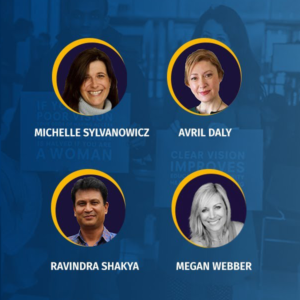
Inviting participation of community is integral to advocacy action while we work towards integrated people centered eyecare. Identifying these voices, understanding ways to include and incorporate these voices in our advocacy plans becomes crucial to deliver and sustain people centered eyecare. This video attempts to capture the sector’s experience and learning in capturing these voices and discusses how the sector can prioritise and develop the capability to put community voices at the centre of our advocacy plans, processes, and systems.
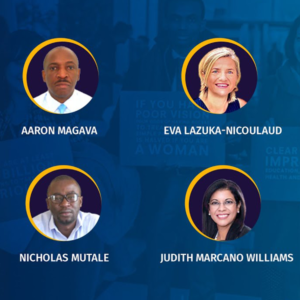
While engaging with governments for policy change, the process involved in a dialogue that is impactful can be credited to a well-planned process that identifies entry points, stakeholders, key advocacy messages and a clear course of action. This video presents such a discussion exploring best practices and approaches to delivering effective policy dialogues on eye health, especially integrated people centered eye care. The recording also includes a presentation on some tips for effective advocacy messages and support tools and resources available to guide the process.